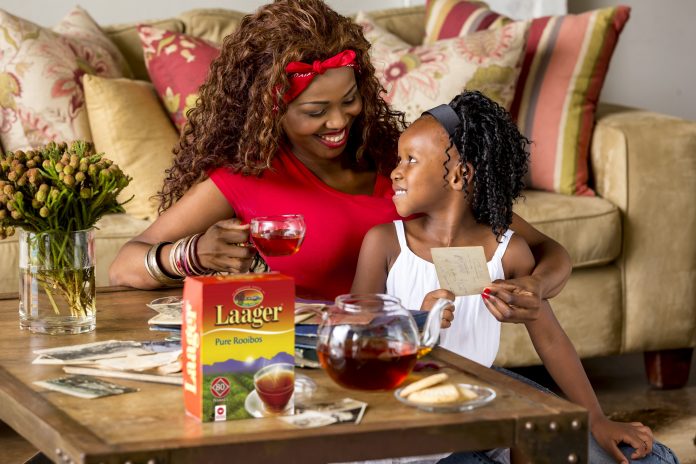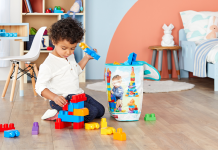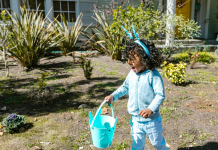With March marking a year since Covid-19 first arrived in South Africa, Laager Tea4Kidz is encouraging caregivers to check in on the emotional wellbeing of children. This is because, despite outward appearances and talk of childlike resilience, the impact of the pandemic will be felt by every young person in some way, and it’s important that this is both acknowledged and addressed.
“Too often, we overestimate our children’s ability to simply bounce back from an experience, and we miss the signs that something is wrong,” explained Tea4Kidz Marketing Manager, Candice Sessions. “At Laager Tea4Kidz, the health and wellbeing of all South African children is a priority, which is why we’ve sought the expert insight from counselling psychologist, Kerry Salvesen, and dietician, Mbali Mapholi for a holistic solution to safeguarding children during this time.”
5 Tips to help children cope with Covid-19
1. Ease their daily anxiety
Salvesen, a highly experienced, Westville-based counselling psychologist specialising in child psychology, explained that anxiety is a natural response to unpredictable environments, such as those brought on by the pandemic.
“The level of anxiety in our community has escalated and is feeding down to our children,” she said. “We need to really listen to our children and acknowledge their feelings before offering solutions. Routine and predictability are key ingredients to assist children with anxiety, so make monthly, weekly, and daily schedules and discuss these with your children. Prepare for school the night before to avoid the morning rush and let the children decide on their extra murals and timetables. Have some boundaries that are non-negotiable and have some that are negotiable. Children thrive with boundaries and feel safe and secure when boundaries are established and maintained.”
2. Encourage exercise
Salvesen said not to underestimate the importance of physical activity in children’s development: “We need them to exercise every day, whether it is formal sports’ training or just playing outside. Screen time has eaten into children’s play and outdoor time, and science has proven again and again the benefits of exercise on mood, sleep and overall mental health. Screen time should be carefully monitored and limited age appropriately.”
3. Maintain friendships
While social distancing is a necessary part of children’s current reality, Salvesen reminds caregivers that children are social beings, and maintaining friendships is vital, with play dates and parties less frequent: “Find other ways to keep up their friendships, whether it’s video calls, letter writing or dropping off treats in the post boxes of friends. These alternative methods of communication have positive benefits for both the children who are initiating the interaction and the ones receiving.”
4. Talk simply and with honesty
“Many children have lost loved ones and been exposed to death for the first time,” explained Kerry. “Remember that we cannot shield children from these real and difficult emotions; our job is to walk with them through the stages of grief and hold their hands when needed. Speak in simple, truthful language and make sure that their basic needs are still being met during the period of mourning. It’s important to keep memories of loved ones alive through pictures, talking about the person and following rituals that remind us of them.”
5. Maintain a healthy diet
Specialist dietician, Mbali Mapholi, has years of experience in child-focused nutrition, with a passion for getting South Africa’s children into healthy routines: “What children eat and drink has an impact into their moods and how they manage day-to-day stressors and anxiety. A diet rich in whole grains, vegetables, and fruits is a healthier option than eating a lot of simple carbohydrates found in processed foods. Carbohydrate-rich foods and drinks cause a sudden increase, and then a quick drop in blood sugar levels which may cause a child to feel jittery, exacerbating underlying anxiety. Children have small tummies so it is crucial to not fill them up with sugar-laden food and drinks.”
Instead, she advises a balanced diet and constant hydration in the form of a drink like Tea4Kidz. This range has all the benefits of Rooibos tea, including antioxidants and improved overall health, with a variety of great-tasting flavours. It can be enjoyed hot, or cold as an iced tea with a squeeze of honey and some fresh fruit.
On a final note, Salvesen said there is a silver lining to all of this: “For many families, the lockdown has been a chance to spend quality time with our children, bringing many closer than ever. Remember to cherish that gift of time, as children grow so quickly, and every day with them is special. There is no right or wrong way to respond to a pandemic, so be kind to yourself and others as we navigate our way together.”
Tea4Kidz, Laager’s range of Rooibos teas designed specifically with kids in mind, is available in a range of six delicious flavours, including 2 with added Vitamin C. Tea4Kidz provides parents with a healthy drink option to ensure adequate hydration throughout the year. For more information, visit www.joekels.co.za.






